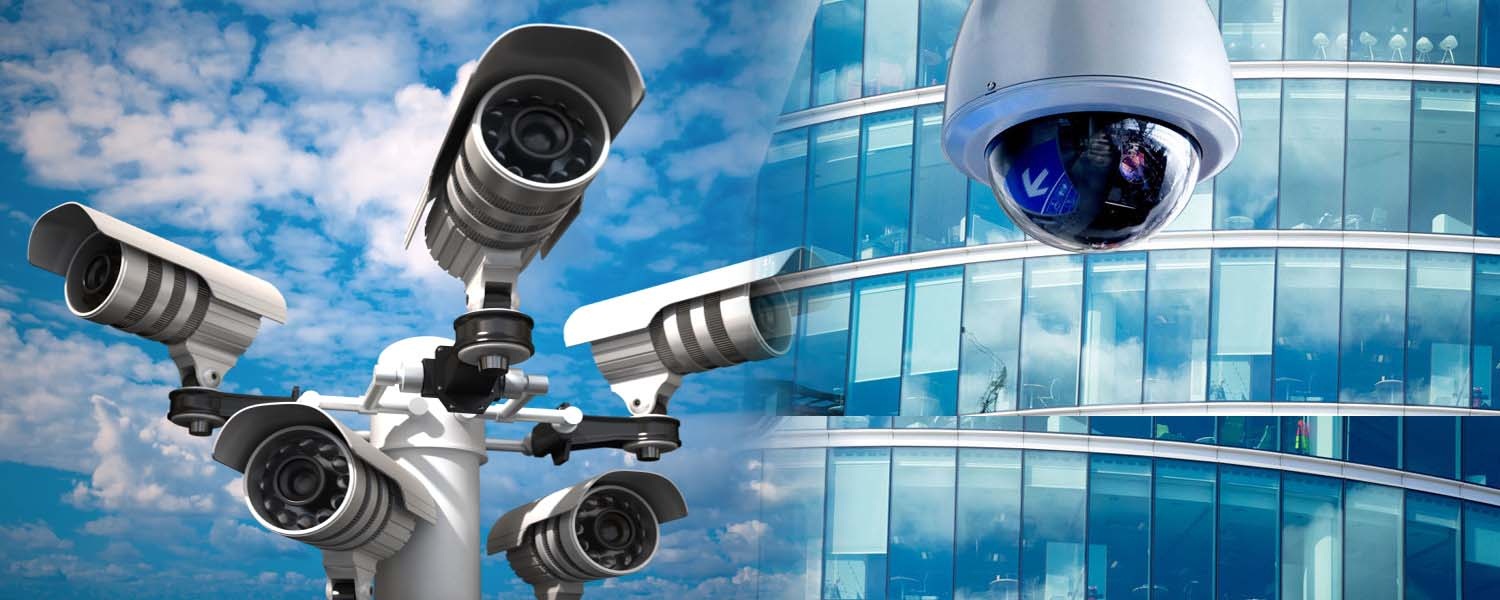Commercial CCTV (Closed-Circuit Television) cameras are essential tools for enhancing security in business environments. This article explores the types, benefits, installation considerations, and best practices associated with commercial CCTV systems.
Types of Commercial CCTV Cameras
Dome Cameras
Dome cameras are popular in retail and office settings for their discreet design and wide-angle coverage. They blend into the environment and deter potential intruders.
Bullet Cameras
Bullet cameras are robust and visible deterrents, ideal for outdoor surveillance due to their weather-resistant casing and long-range visibility capabilities.
Benefits of Commercial CCTV Cameras
Enhanced Security Monitoring
CCTV cameras provide real-time monitoring of business premises, helping to prevent theft, vandalism, and unauthorized access. They offer continuous surveillance, even in low-light conditions.
Crime Deterrence
Visible CCTV cameras act as a deterrent to criminal activities, reducing the likelihood of incidents and improving overall safety for employees, customers, and assets.
Considerations for Choosing CCTV Cameras
Business Needs Assessment
Evaluate your business’s security requirements, including the size of the premises, areas needing coverage, and specific security concerns such as high-traffic zones or vulnerable entry points.
Camera Specifications
Consider factors such as camera resolution (HD, Full HD, 4K), field of view, night vision capabilities, and weather resistance to ensure cameras meet operational needs and environmental conditions.
Installation and Placement Tips
Strategic Camera Placement
Install cameras in strategic locations such as entrances, loading docks, parking lots, and critical areas within the premises. Ensure cameras cover both internal and external areas effectively.
Professional Installation
Engage professional CCTV installers who can assess your security needs, recommend suitable camera types, and ensure correct placement and wiring for optimal performance.
Top Features to Consider
Remote Access and Monitoring
Choose CCTV systems with remote access capabilities, allowing business owners and security personnel to view live feeds and playback recordings from anywhere via mobile apps or web browsers.
Motion Detection and Alerts
Integrate cameras with motion detection technology to receive instant alerts via email or mobile notifications when suspicious activity is detected, enhancing proactive security measures.
Conclusion
Commercial CCTV cameras play a pivotal role in safeguarding businesses against security threats and enhancing operational safety. By understanding the types, benefits, installation considerations, and advanced features of CCTV systems, businesses can make informed decisions to protect their assets and personnel effectively.
FAQs about Commercial CCTV Cameras
Q: How many CCTV cameras do I need for my business?
A: The number of cameras depends on your business size, layout, and security goals. Conduct a security assessment or consult with a CCTV installer to determine the optimal camera quantity and placement.
Q: Are CCTV cameras effective in deterring crime?
A: Yes, visible CCTV cameras act as a deterrent to criminal activities by increasing the perceived risk of detection and apprehension. They contribute to a safer business environment.
Q: What are the legal considerations for installing CCTV cameras in a commercial property?
A: Adhere to local privacy laws and regulations regarding CCTV surveillance, including signage requirements, data protection guidelines, and employee/customer consent where applicable.
Q: Can CCTV systems be integrated with existing security systems?
A: Yes, modern CCTV systems can integrate with access control systems, alarms, and other security measures to provide comprehensive protection and streamline security management.
Advanced CCTV Camera Technologies
High-Definition (HD) Resolution
Invest in CCTV cameras with HD resolution (720p, 1080p, or higher) for clear and detailed video footage. HD cameras provide better image quality, crucial for identifying faces, license plates, and other critical details.
Infrared (IR) Night Vision
Choose cameras equipped with infrared night vision capabilities to capture clear video footage in low-light or nighttime conditions. IR technology illuminates the area with invisible infrared light, enhancing visibility without attracting attention.
Benefits of Cloud-Based CCTV Systems
Remote Storage and Access
Cloud-based CCTV systems store footage securely online, offering convenient access via internet-connected devices. This feature enables remote viewing, playback, and management of video recordings from anywhere, enhancing flexibility and scalability.
Scalability and Flexibility
Cloud-based solutions are scalable, allowing businesses to add or remove cameras as needed without extensive hardware upgrades. They offer flexibility in managing multiple locations from a centralized platform, ideal for expanding businesses.
Integrating CCTV with Smart Security Features
Motion-Activated Recording
Enable motion-activated recording to conserve storage space and focus on relevant events. Cameras with intelligent motion detection algorithms minimize false alerts and prioritize critical incidents, improving efficiency in monitoring.
Two-Way Audio and Intercom Systems
Integrate CCTV systems with two-way audio capabilities or intercom systems to facilitate real-time communication between security personnel and individuals on-site. This feature enhances security response times and enables remote interaction.
Industry-Specific Applications of CCTV Cameras
Retail and Hospitality
In retail environments, CCTV cameras monitor customer behavior, prevent shoplifting, and ensure employee safety. In hospitality settings, cameras enhance guest safety and monitor service areas, maintaining a secure environment.
Manufacturing and Warehousing
CCTV cameras in manufacturing plants and warehouses monitor production processes, prevent theft of inventory or equipment, and ensure compliance with safety regulations. They enhance operational efficiency and reduce risks.
Future Trends in CCTV Technology
Artificial Intelligence (AI) Integration
AI-powered CCTV systems use machine learning algorithms to analyze video data in real-time, detecting anomalies, predicting potential threats, and enhancing proactive security measures.
Facial Recognition Technology
Facial recognition capabilities in CCTV cameras identify individuals based on facial features, improving access control and enabling personalized security protocols in high-security environments.


